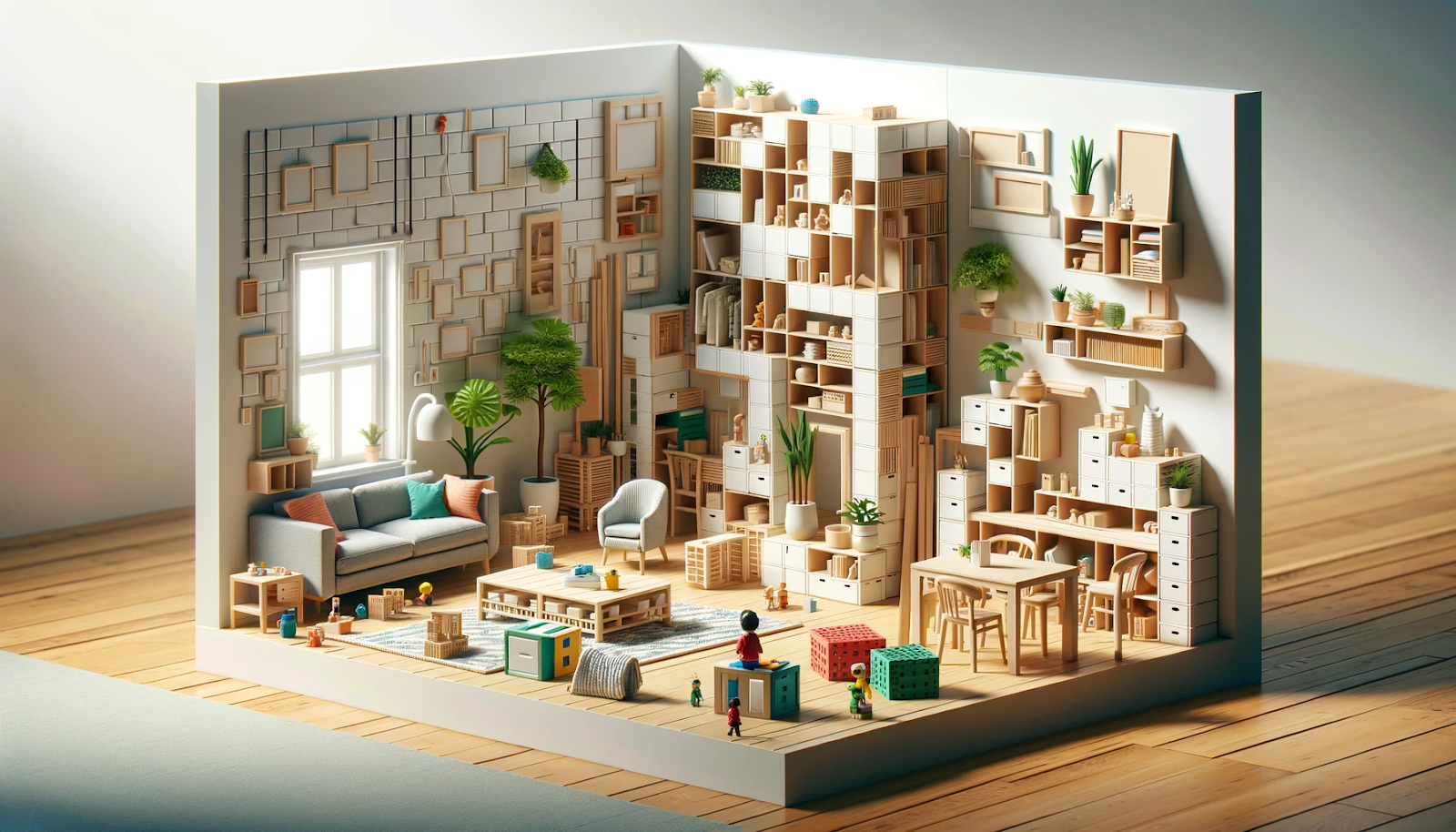Make a small room into a large one and vice versa, combine a kitchen with a living room to keep up with the latest trends, build and destroy, create and remove - redevelopment allows you to change your home beyond recognition. But in your creative impulse, you should not forget about the bureaucratic side of the issue. When it comes to real estate transactions, there is simply no escape. Therefore, there is no need to avoid formalities that will sooner or later catch up with you.
Difference between redevelopment and reconstruction

Many people unknowingly confuse these two terms and consider them synonymous. They are indeed similar in meaning, but it is their differences that can cause the property owner to break the law without even knowing it.
Reconstruction – repair and construction work that directly affects load-bearing walls and/or utility systems.
If you decide to combine several rooms with a load-bearing wall, you decide to move it, disassemble it, reduce it, dig out a beautiful arch, or do anything that will affect it, we are talking about redevelopment. Without proper knowledge of how important the chosen wall is, you can make changes through your actions that are dangerous not only for your apartment, but for the entire house. Of course, in this case, obtaining special permission is mandatory. It guarantees compliance with technical requirements, legality and harmlessness of repair work.
Redevelopment is repair and construction work that in no way affects the load-bearing walls, although they affect the appearance and characteristics of the object.
Redevelopment can also concern the construction and destruction of walls, the transfer and creation of rooms, the combination and delimitation of spaces, but only secondary, and not load-bearing walls, are involved in all these processes. Therefore, no matter how you change your apartment, it the new kind will not affect the neighbors and the house as a whole. A permit will no longer be required to carry out the work, but do not forget that upon completion you will still have to include information about its new appearance in the documents for the apartment.
To avoid accidentally messing things up, you can study Cabinet Resolution No. 406 dated 07.06.2017/XNUMX/XNUMX “On approval of the list of construction works that do not require documents giving the right to carry them out, and after completion of which the facility is not subject to commissioning.” Here is a complete list of work that can be performed in an apartment without obtaining additional permits.
We arrange the redevelopment correctly

You definitely don't need permission if you want:
- ✅ increase the area without touching load-bearing walls and partitions;
- ✅ insulate the room (due to the appearance of an additional inner layer, the total living area becomes a little smaller);
- ✅ combine a room with a balcony without significantly increasing existing openings;
- ✅ install additional partitions in rooms for their optimal zoning;
- ✅ make a single space out of the bathroom and toilet (only if the wall between them is not load-bearing and there is no ventilation system in it);
- ✅ cut out additional doorways or windows inside the apartment (of course, if we are not talking about capital walls).
Unlike reconstruction, you do not need to obtain special permission before starting redevelopment. But after it, it’s still worth putting all the documents in order. The procedure follows a simplified form, so it will not take much time. If the work done is minor, it will be enough to issue a new registration certificate. To do this, you should contact the BTI or any private company that employs relevant specialists. Following the rules prescribed in Technical Inventory Instructions, they will make a detailed analysis of the room and record the slightest changes.
A little more worries await you if the living area of the apartment has changed during the redevelopment. This moment is worth recording in State Register of Property Rights. By providing a technical passport and documents confirming ownership, you will receive an Extract indicating the legality of the repair and construction work.
💡 Don’t forget that all co-owners of the apartment must participate in the preparation of documents.
Is it necessary to arrange a redevelopment?

Back in 2017, they decided to soften the requirements for redevelopment. Penalties and any administrative liability were abolished and the requirement to obtain a permit was waived. In fact, legalizing redevelopment has entirely become a matter of conscience for homeowners. Many have decided that unnecessary “paperwork” will not affect their own. That's how it is, but only up to a certain point. Laziness will come out when you least expect it - illegal redevelopment will disrupt all your plans when it comes to:
- sale of apartment;
- inheritance of real estate;
- donation of an object;
- registration of property as collateral for a loan;
- exchanging one apartment for another;
- other operations.
All these operations simply will not take place. If some of them can still be put off and the necessary paperwork is completed belatedly, then in the event of a sale, your unreliability and irresponsibility may lead to an impatient investor investing his savings in another property. Fortunately, there are enough offers on the market, so he will only lose a small part of his precious time. We advise you to settle all matters in advance. In addition, all you need to provide for this is:
- owner documents (identification code and passport);
- old technical passport (if you have one);
- documents confirming ownership of the apartment.
Feel free to contact us after legalizing the redevelopment if you want to sell your property or start making money on it rental. Income, especially passive income, will never be superfluous.




